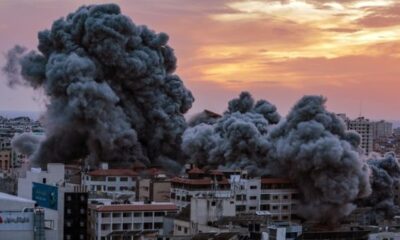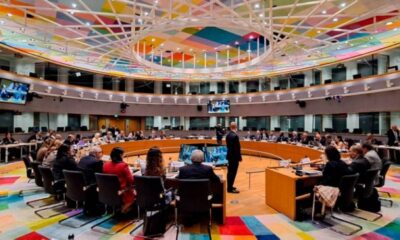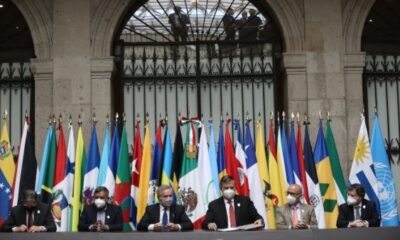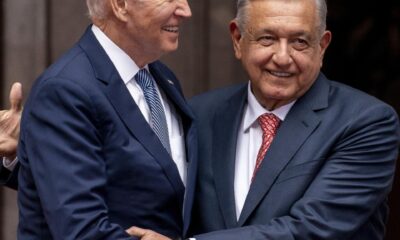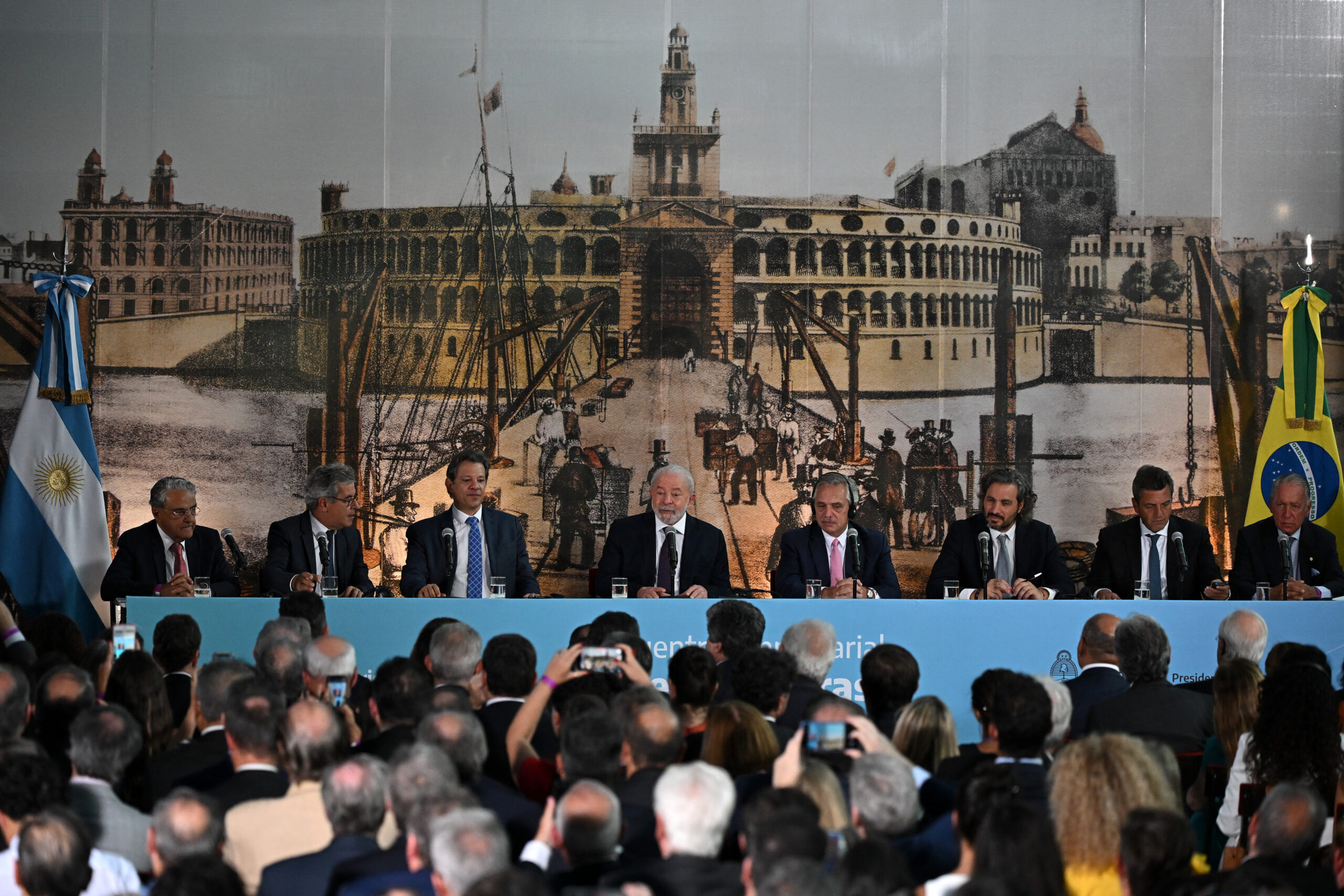Internacionales
Agreement to promote regional development to address migration
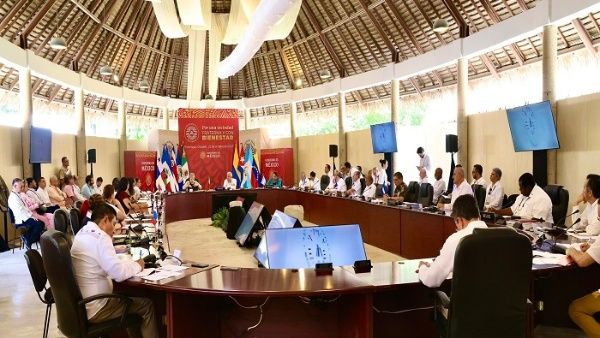
October 23 |
Latin American countries participating in the Palenque Summit on migration, held this Sunday in the Mexican state of Chiapas (southwest), agreed to develop and implement an action plan for development to address the structural causes of migration in the region.
The meeting was attended by leaders and high-level representatives from Belize, Colombia, Costa Rica, Cuba, Ecuador, El Salvador, Guatemala, Haiti, Honduras, Panama and Venezuela.
Mexico’s Secretary of Foreign Affairs, Alicia Bárcena, read the communiqué-declaration of the “Palenque Meeting: for a fraternal neighborhood with well-being”, which defined that the main causes of the growing irregular migratory flow faced by the region are structural and of economic, political and social origin, in addition to factors linked to climate change.
The participants considered that the current exodus is also caused by external factors, such as unilateral restrictive measures of a criminal nature applied by third countries, which affect entire communities and, to a greater extent, the most vulnerable population groups.
In addition, they warned of the need to address irregular migration from a human rights (HR) perspective, in order to address its structural causes and regulate migratory flows jointly.
In light of this diagnosis, the heads of state and high-level representatives of the 11 countries agreed to develop a development action plan to address the structural causes of irregular migration in the region, which will be based on priority objectives and an understanding of the realities of each country.
Priority areas were defined as: food production and recovery of the agricultural sector, environmental preservation, employment generation, energy security (including migration to clean energy and decarbonization processes), health self-sufficiency, intra-regional trade and investment, and combating organized crime, corruption and human trafficking.
The heads of state and government, as well as high-level representatives attending Chiapas, urged an end to unilateral coercive measures and emphasized that they are contrary to international law.
The plan of action included the promotion of intra-regional trade and preferential tariffs for basic goods and services; the call for countries of origin, transit and destination to respect the right to migrate, safeguard the lives of migrants and create regularization options; and a call for destination countries to adopt migration policies in line with the regional reality and abandon selective policies, such as those that allow the regularization of certain nationalities.
It also called for a decisive contribution to Haiti’s sustainable development, the reestablishment of its human security environment and the normalization of its economic, political and social situation.
Other actions that make up this plan are to propose in a coordinated manner that the international financial debt architecture be rethought so that lower income countries achieve a higher level of development and reduce the intention to emigrate, and to request destination countries to expand regular, orderly and safe channels for emigration, with an emphasis on labor migration.
The participants in the Palenque Summit agreed to hold dialogues at the highest level on these issues through a working group to be created by the Ministries of Foreign Affairs. It was made clear that these agreements will be linked to the High Level Meeting on Migration and Development in Latin America and the Caribbean, proposed by Colombia and Mexico, which will take place in the first quarter of 2024.
In addition, they proposed to the governments of Cuba and the United States to hold a comprehensive dialogue on their bilateral relations as soon as possible.
Referring to the meeting, the President of Venezuela, Nicolás Maduro, recalled that the country has faced more than 930 unilateral coercive measures and that during the “Palenque Meeting: for a fraternal neighborhood with well-being” it was demanded that the U.S. and other nations put an end to them.
He expressed that Venezuela will fully support the approved action plan. He highlighted the unity expressed by the participants to adopt a development model and their own path that would result in integration, as the Liberator Simón Bolívar would have wished.
Internacionales
Cuban Supreme Court Confirms Successful Completion of Prisoner Release
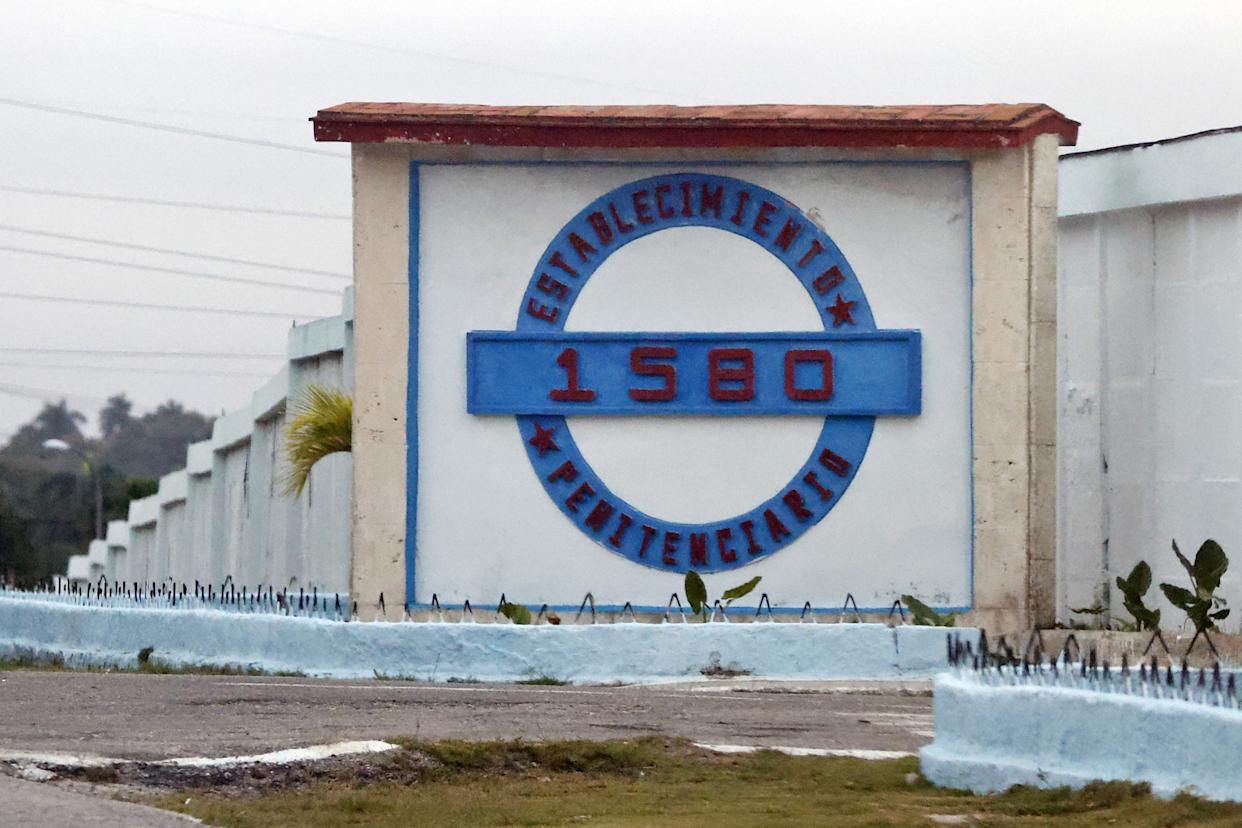
The People’s Supreme Court of Cuba announced on Monday that it has successfully completed the release of 553 prisoners, a process first announced on January 14. Among those freed were political prisoners, including opposition figures José Daniel Ferrer and Félix Navarro.
The announcement came shortly after Washington, in the final days of the Biden administration, decided to remove Cuba from its list of state sponsors of terrorism.
While Havana has insisted that the releases were a unilateral and sovereign decision, the United States maintains that the measure was part of an agreement mediated by the Vatican. According to U.S. sources, many of those released were participants in the July 11, 2021, anti-government protests, the largest demonstrations Cuba has seen in decades.
Cuban authorities have not provided a list of the released prisoners or a timeline for the implementation of the measure, despite multiple requests for information from EFE.
Internacionales
Russia calls Zelensky’s Washington visit a “complete failure” after altercation with Trump
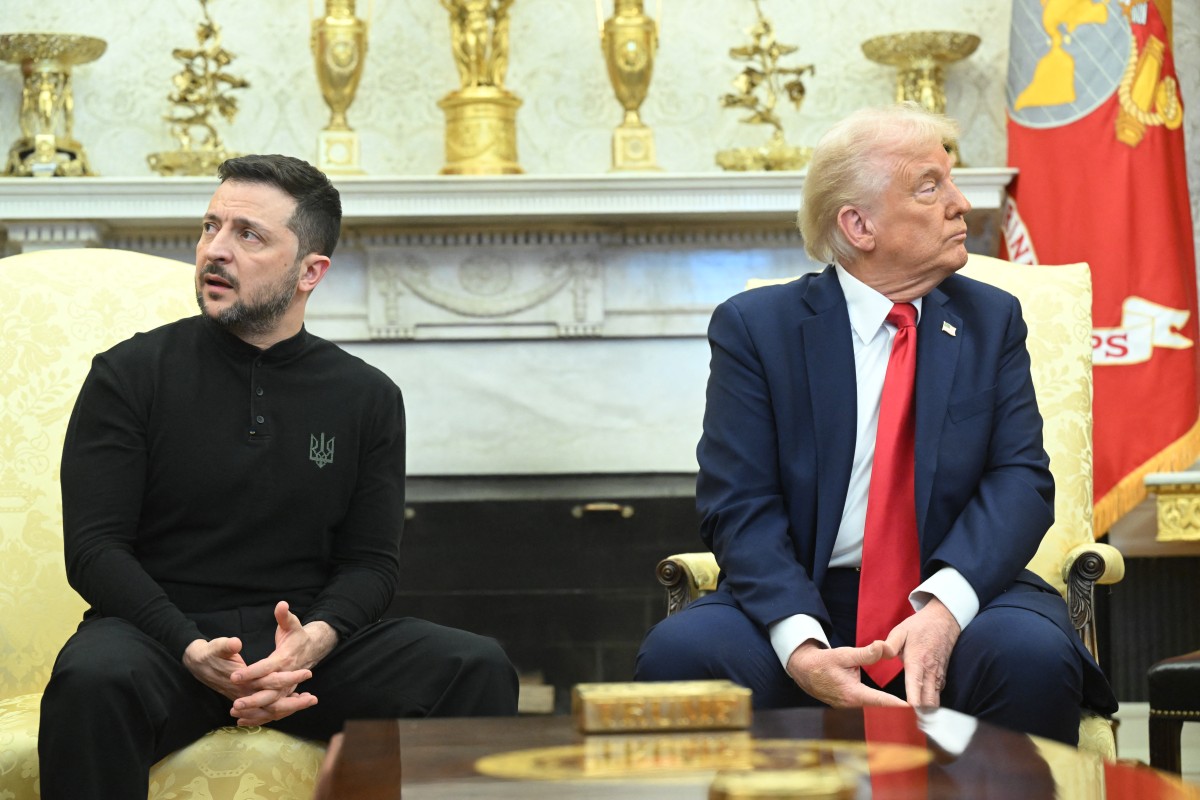
Russia stated on Saturday that Volodymyr Zelensky’s visit to Washington was a “complete failure” following the altercation with Donald Trump, accusing the Ukrainian leader of being “obsessed with continuing the war” with Moscow.
The visit “was a complete political and diplomatic failure of the Kiev regime,” said Russian Foreign Ministry spokesperson Maria Zakharova in a statement. Zakharova accused Zelensky of being “incapable of demonstrating a sense of responsibility,” of “rejecting peace,” and of using “lies and manipulations to justify the continuation of hostilities and the reception of military and financial aid from the West.”
Zelensky’s visit to Washington on Friday turned into a verbal brawl before cameras worldwide, when his counterpart, Donald Trump, and Vice President J.D. Vance accused the Ukrainian leader of being ungrateful for U.S. aid and rejecting peace talks. Zelensky was prematurely escorted out of the White House without signing the agreement he had gone to Washington for, which involved giving up the exploitation of Ukraine’s mineral resources in exchange for security guarantees.
“With his excessively rude behavior during his visit to Washington, Zelensky confirmed that he is the most dangerous threat to the international community as an irresponsible warmonger,” Zakharova stated.
She also accused European leaders of “political weakness” and “baseness” for backing Zelensky after the “moral lesson” he received in Washington.
Internacionales
Lula criticizes Trump-Zelensky meeting: “Grotesque and disrespectful”

Brazilian President Luiz Inácio Lula da Silva stated on Saturday that Ukrainian President Volodymyr Zelensky was humiliated during his meeting with U.S. President Donald Trump, calling the scenes broadcast live by the media “grotesque.”
“I’m not a diplomat, but since diplomacy was created, there has never been such a grotesque and disrespectful scene as the one that took place in the Oval Office of the White House,” Lula told reporters in Montevideo, where he was attending the inauguration of Uruguay’s president-elect, Yamandú Orsi.
“Honestly, I believe that part of society thrives on disrespecting others, and it is impossible to talk about democracy without respecting other human beings. I think Zelensky was humiliated, and I believe that in Trump’s mind, Zelensky deserved it,” he added.
Earlier on Saturday, Lula met with German President Frank-Walter Steinmeier for a bilateral discussion. During their meeting, Lula stated that Europe would likely bear the responsibility for rebuilding Ukraine and maintaining NATO.
“It is very likely that Europe will be blamed for the disaster happening now, when in reality, it is not the fault of any specific country. It is a matter of irresponsible leaders who refuse to discuss peace and instead prefer to talk about war,” he argued.
Lula also reiterated Brazil and China’s proposal for a negotiated peace process, which would bring Ukraine and Russia to the table with other countries acting as mediators.
-

 International3 days ago
International3 days agoSon of journalist José Rubén Zamora condemns father’s return to prison as “illegal”
-

 International3 days ago
International3 days agoMiyazaki’s style goes viral with AI but at what cost?
-

 International1 day ago
International1 day agoTrump urges Putin to reach peace deal
-

 Central America2 days ago
Central America2 days agoPanama police clarifies that Interpol alert for Martinelli is still pending
-

 Central America1 day ago
Central America1 day agoU.S. Homeland Security Secretary urges Mexico to strengthen Guatemala border
-

 International2 days ago
International2 days agoDeportation flight lands in Venezuela; government denies criminal gang links
-

 Central America1 day ago
Central America1 day agoPanama grants Martinelli 72-hour extension to travel to Nicaragua
-
Central America4 days ago
Nicaragua revokes legal status of 10 more NGOs, bringing total to over 5,600














